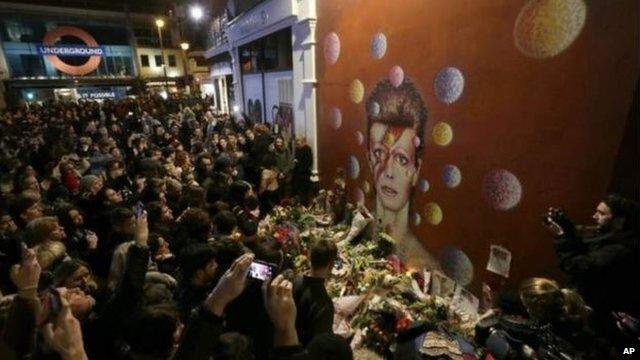David Bowie art collection revealed for the first time
- Published
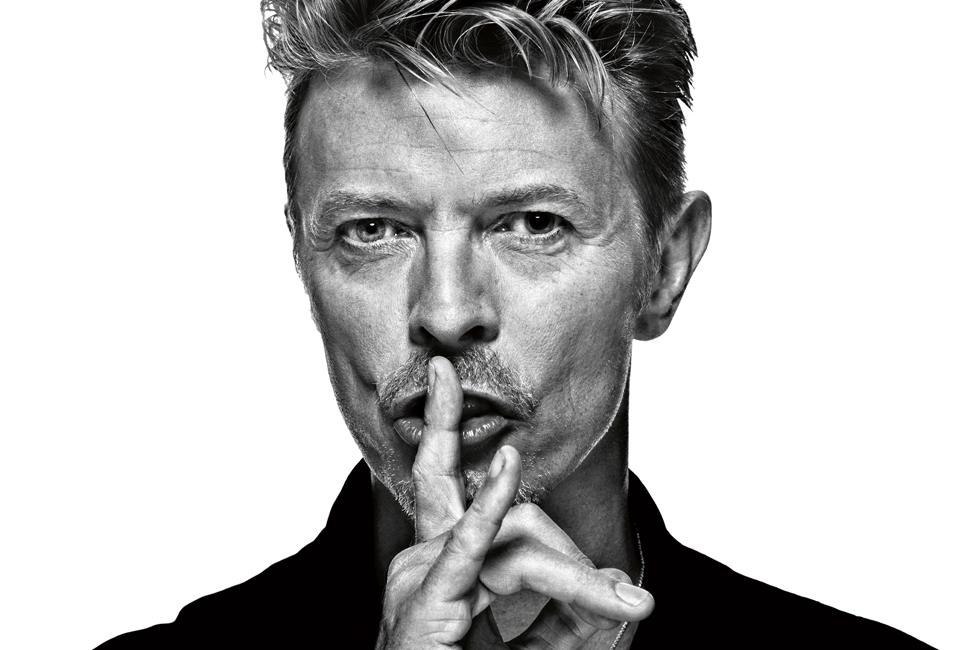
The private art collection of David Bowie is to be revealed to the public for the first time.
The musician's life as a collector was something he kept almost entirely hidden from public view.
But now, nearly 300 works by artists including Damien Hirst, Henry Moore and Marcel Duchamp will go on display at Sotheby's in London, before being sold at auction in November.
The paintings are collectively expected to fetch more than £10m.
"David Bowie's collection offers a unique insight into the personal world of one of the 20th Century's greatest creative spirits," said Oliver Barker, chairman of Sotheby's Europe.
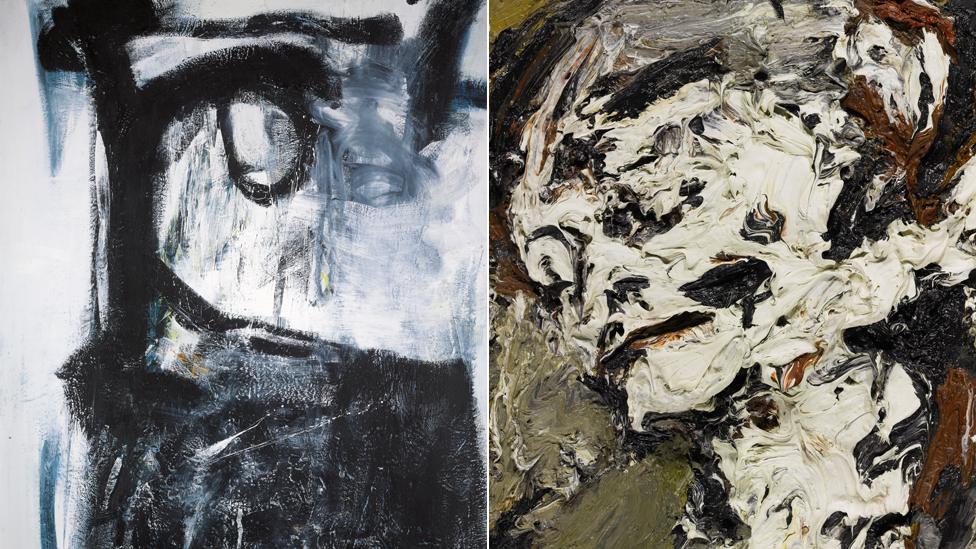
Works by Peter Lanyon (left) and Frank Auerbach were found in Bowie's collection
Most of the works are by 20th Century British artists, with pictures by Stanley Spencer, Patrick Caulfield and Peter Lanyon.
Born and raised in South London, David Bowie was also drawn to chroniclers of the capital's streets such as Leon Kossoff and Frank Auerbach.
In 1998 Bowie told the New York Times, "My God, yeah - I want to sound like that looks," in response to the work of Auerbach.
He was also fascinated by British landscapes and collected works by artists including John Virtue. Seven of his monochrome works are included in the sale.
But the broad ranging collection is not limited to British art. Among the more maverick works is a piece by Duchamp - A Bruit Secret - in which he placed a ball of string between two brass plates, with an unknown object hidden in the middle. It is expected to fetch up to £250,000.
The artist and writer Matthew Collings reviews David Bowie's private art collection.
The American artist Jean-Michel Basquiat's graffiti-style painting Air Power is the most valuable lot in the auction, with an estimated value of between £2.5m - £3.5m.
Bowie bought the painting a year after he played the role of the artist's mentor, Andy Warhol, in the 1996 film Basquiat.
The artist and writer Matthew Collings says the collection reflected Bowie's personality.
"I would characterise it as bohemian, romantic, expressive, emotional art. Art that's filled with feelings," he said, adding it was "vivid and exciting" and was "art that calls for a gut reaction, that's visceral, that's immediate, that you feel excited by straight away".
Although Bowie told the BBC in 1999 "The only thing I buy obsessively and addictively is art," little had been known about his life as an art collector.
He did not buy on the basis of reputation or for investment, but because of his own personal response to each artist and their work.
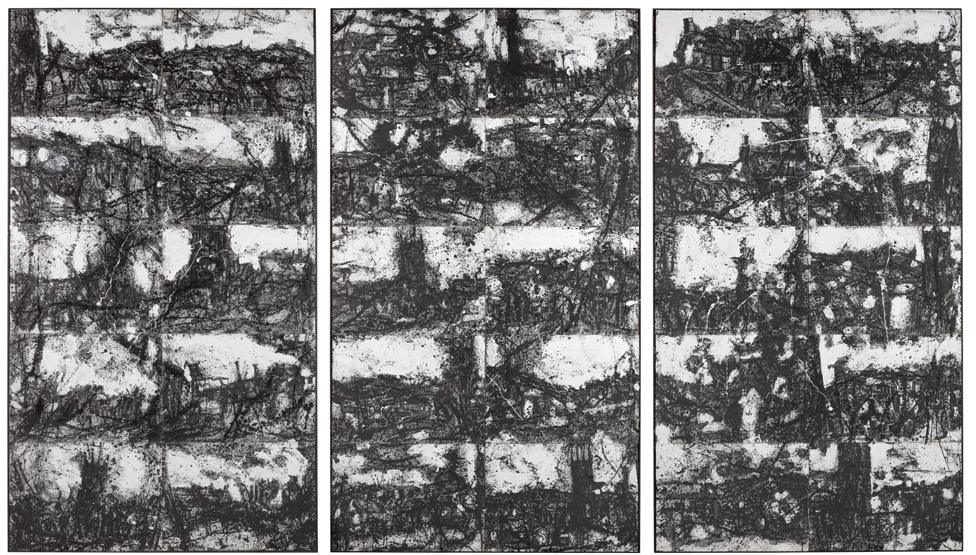
Seven works by John Virtue are among the pieces Bowie owned
Collings thinks he kept his collection private because "he wasn't pretentious about it".
"I think he was an absolutely genuinely enthusiastic collector who didn't collect to be swanky or to big himself up," he said.
"He really collected because he had a use for that work and it was a personal use. He looked at those things and they changed his state of being."
Bowie loved the art world. In 1994, in an unusual move for a rock superstar, he joined the editorial board of a quarterly arts magazine Modern Painters where he was introduced to the novelist William Boyd.
The pair became friends and Boyd said it was clear Bowie was not just "a celebrity on the board - he genuinely had something to contribute".
"He did go to art school. He wanted to talk very seriously about artists, painters, themes and movements. So it was not a hobby or a whim, it was a very serious passionate interest."
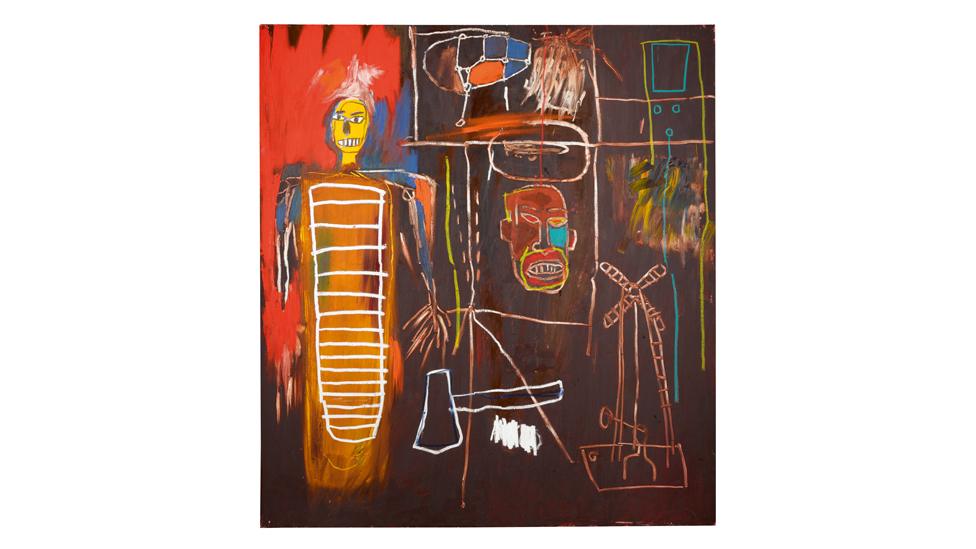
Bowie bought Jean-Michel Basquiat's Air Power in 1997
Boyd also thinks the art world appealed to Bowie because it was so different from his music career.
"He could be himself, David Jones rather than David Bowie. He found a forum and a world that he could move about in that had nothing to do with his fame. I think for a lot of famous people, if you can find that world, it's actually tremendously gratifying and fulfilling."
Bowie went on to launch an art book publishing company called 21. His time there is probably best remembered for one of the most famous art hoaxes in history.
He hosted a glamorous launch party at Jeff Koons's studio in Manhattan for a book celebrating the life and work of an American artist called Nat Tate. The catch? He did not exist. He was invented by Boyd.
"Without his participation it would never have been as big a hoax as it turned out to be," Boyd said, adding he thinks Bowie enjoyed the challenge of trying to pull it off.
"Everybody loves a hoax and I think to fool a bunch of self-important intellectuals is no bad thing from time to time."
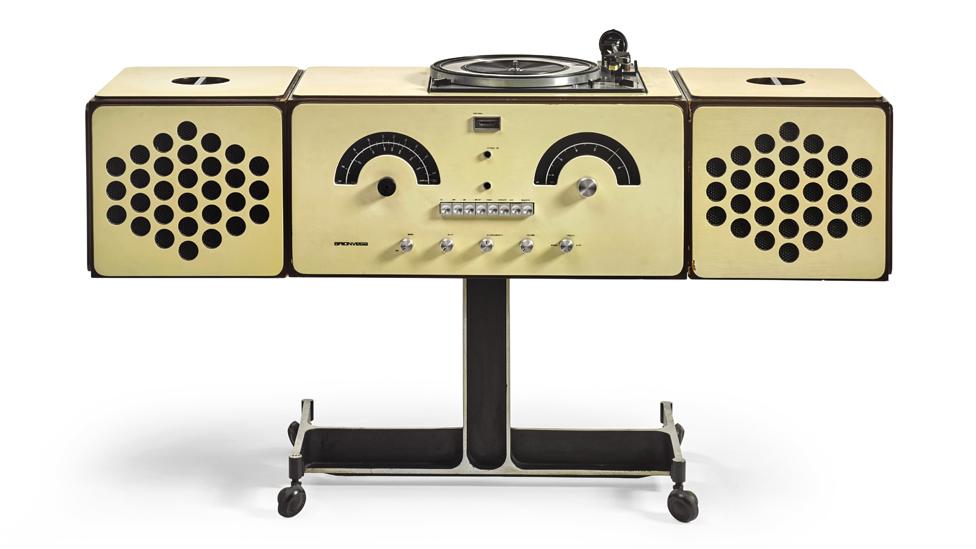
The stereo cabinet is among the furniture owned by Bowie which will be auctioned
As well as 267 paintings, more than 120 items of 20th Century furniture and sculpture will also be auctioned. Among them, a striking 1960s stereo cabinet created by the Italian designers Achille and Pier Giacomo Castiglioni.
Perhaps it should come as no surprise that Bowie listened to music on such an unconventional record player.
Proceeds from the sale will go to Bowie's family. Although lack of space, not money, is the reason they have decided to sell.

Follow us on Twitter @BBCNewsEnts, external, on Instagram at bbcnewsents, external, or email entertainment.news@bbc.co.uk, external.
- Published11 January 2016

- Published11 January 2016
